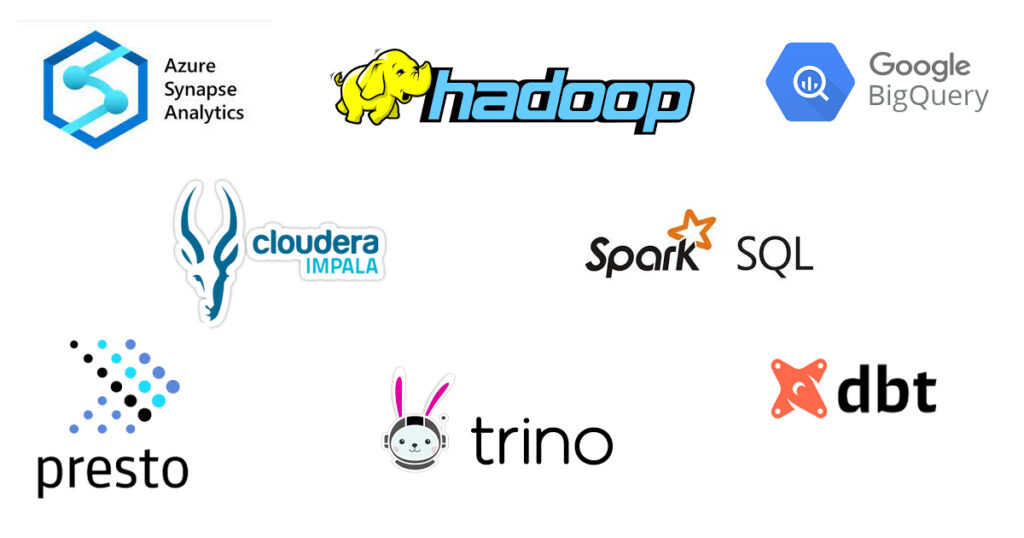Introduction
SQL (Structured Query Language) is the one of the oldest programming languages being used since 1970s to retrieve the data from relational database systems. However due to expanding data, businesses deal with lots of issues handling and managing it. SQL expert is one of the highest skills which is in demand. Since, SQL is stable, well-established, and present in every company to store the data in structured formats, the demand for data analyst with SQL expertise is growing.
Is SQL Outdated?
SQL is not being phased out and is not exhibiting signs that it is. Additionally, companies frequently rate SQL proficiency as the basic and important tech talent for employment in programming, machine learning, and data management.
Why is SQL important for Data Analyst Experts?
SQL is a robust query language which is pronounced as “sequel”, is ideally suited for retrieving from or storing data in Relational Database Management Systems (RDBMS). Data analysts use focused methods applied to the data to gain insightful knowledge. Select, Update, Delete, Add, Modify, Alter, and several other phrases which can initiate the data querying operations. When a collection of SQL actions is carried out, a set of data is retrieved.
SQL retrieves the data in a specific format and offers flexibility to transfigure or update the data quickly. Data analysts require a dataset to start the exploration to find the profile and facts about a problem or hypothesis. Only those who are familiar with SQL may build datasets and carry out the analysis. Standard SQL tools are essential for professionals who seek to gather and inspect the dataset. To comprehend the data in relational databases and structured data storage systems like metastore on Hadoop, data analysts need to be familiar with SQL. Learning SQL is necessary for data wrangling and preparation.
Advantages of SQL
There are many programing languages like Python, R, SQL etc. which can be used by Data Analyst to understand the data. Data Analysts use SQL in order to manipulate the data and get insights. They access, read, and analyze the data before storing it into the data storage systems like filesystems, Relational Data base systems(RDBS), Bigdata systems etc. Once the analyzed data is stored, the visualizations based on this can be used by Executives and Seniors of the company to formulate constructive strategies for future business. So, let’s understand the advantages of SQL in the process of data analysis.
- Easy to Learn and Apply: Data analysts look for quick analysis that do not require much effort and are simple to implement. In comparison to other programming languages, SQL is simple to learn and implement. Many programming languages are complex, requires additional components and processing engines. Even for sophisticated calculations, SQL is the simplest programming language to implement.
- Simple way to profile and prepare the dataset: The dataset under review serves as the main foundation for data analytics. Analysis may start with finding the profile of the dataset like presence of null values, unique count of values etc. Data analysts can easily comprehend the dataset with SQL to create better sense of how to design the transformations or formatting to arrive at the finally prepared data for further use.
- Integration with visualization tools: The process of data analytics requires data visualization to infer the insights. It is therefore preferable to combine SQL with well-known data visualization engines. One can use SQL into paid tools like Power BI or Tableau, or open-source visualization tools like Apache Superset. Additionally, to obtain authorization for working on datasets, data analysts may need schema or database connectors to securely connect and query the data set.
- Better handling of Data Volumes: A dataset contains thousands to millions of records needed for analysis. Conventional file handling techniques are hard for analysis of large data volume. In bigdata scenarios, the dataset will be stored in files having formats which are optimized for storage. While the metastore schema defined over the files can be used by SQL to analyse and prepare the data set. Query performance optimization and scalability techniques can be implemented for handling large data volumes. So, it is advantages for data analyst to utilize SQL wisely to handle data rather than utilizing spreadsheets to examine the information.
The benefits outlined above demonstrate the value of SQL and, consequently, the value of SQL Data Analysts in any firm. Because employers are seeking employees who can expand their businesses and boost efficiency with their data abilities, a career as a SQL Analyst is a preferred pick.
SQL for bigdata analysis
Nowadays, due to increasing data volumes it has become difficult to handle and store the data into the local machines. Many big data tools and technologies are developed and currently being used by data driven businesses. Following is the list of big data analytics tools and technologies using SQL:

- Apache Hadoop: A group of analytical application tools known as SQL-on-Hadoop combines traditional SQL-style queries with more recent Hadoop data framework components. SQL-on-Hadoop enables data engineers and analysts to work with Hadoop on commodity computing clusters by providing conventional SQL queries. SQL works on Hadoop 1 model, by translating into MapReduce to execute on the Hadoop Distributed File System(HDFS). On Hadoop 2 or later versions, SQL can function without either HDFS or Map-Reduce.
- Exploratory Data Analysis on cloud: Cloud providers like Google cloud (GCP) or Microsoft Azure provide data storage and data analysis platform. On Azure a complete workbench is enabled with querying features using SQL. On GCP the SQL like feature is available through the Big Query standard QL and in Azure cloud this data analysis feature is enabled through Azure Synapse.
- Other open data analysis systems: There are many opensource data analytics tools which support the SQL based data analysis. Some of them are mentioned below
- Trino: Trino is a distributed SQL query engine that can be used for analyzing big data from varied sources or storage systems.
- Presto: Presto is another opensource SQL engine that can query data efficiently from many types of sources or storage systems. This can be made to scale based on the query performance requirements. This can also integrate well with many paid and opensource data visualization engines for showcasing the data analysis results.
- Impala: Impala is an MPP (Massive Parallel Processing) SQL query engine for handling enormous amounts of data kept in a Hadoop cluster. It is an opensource software that was created using Java and C++ by Apache foundation. Compared to other Hadoop SQL engines, Impala offers excellent speed and minimal latency. Impala is the fastest way to retrieve data stored in HDFS and is the highest performance SQL engine providing an RDBMS-like experience.
- DBT(Data Build Tool): DBT is a Data analysis and Transformation tool which supports SQL. DBT equips data analyst to write data analysis scripts and transformations through SQL statements.
Demand for Big Data Analysis Tools in today’s era
A market watch analysis estimated that the Hadoop industry would reach more than $50.0 billion by 2022. In the coming years, the worldwide Hadoop industry is expected to see breathtaking expansion. Hadoop has developed into a reliable platform for the storage and analysis of Big Data since its inception. According to a new analysis, the worldwide Hadoop market revenue is predicted to increase at a 29% CAGR between 2017 and 2023.
In another recent market research, the analysts predict global bigdata analytics market size valued at USD 240.6 Billion in 2021. This is projected to grow to USD 655.5 Billion by 2029 exhibiting a CAGR of 13.4%.
Conclusion
Big data analysis skill is becoming more important than ever and is essential for analyzing business data. Business analyst with good understanding of the domain (for example, financial analyst, equity analyst etc. from investment banking) and SQL will have an advantage in the marketplace as an efficient data analyst. Learning SQL to pursue a career in this area would be needed as it is one of the easier ways to start and perform the data analysis. In today’s information era, where big data tools and technologies are used, SQL is one of the key languages used . SQL is used almost everywhere for analysis. Thus, SQL expertise is very important for pursuing career as a Data Analyst.
Thanks for reading. Please share your comments.
